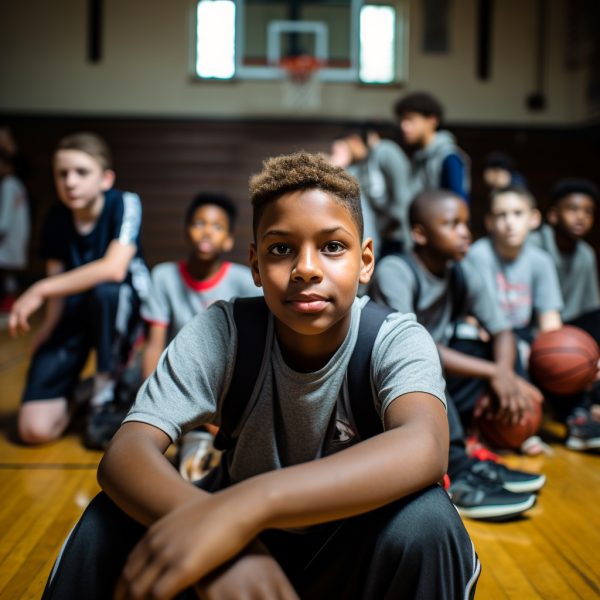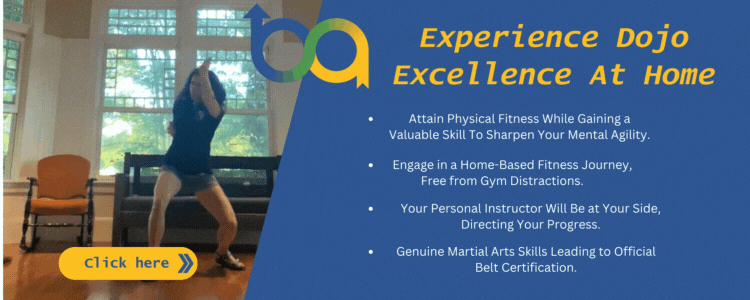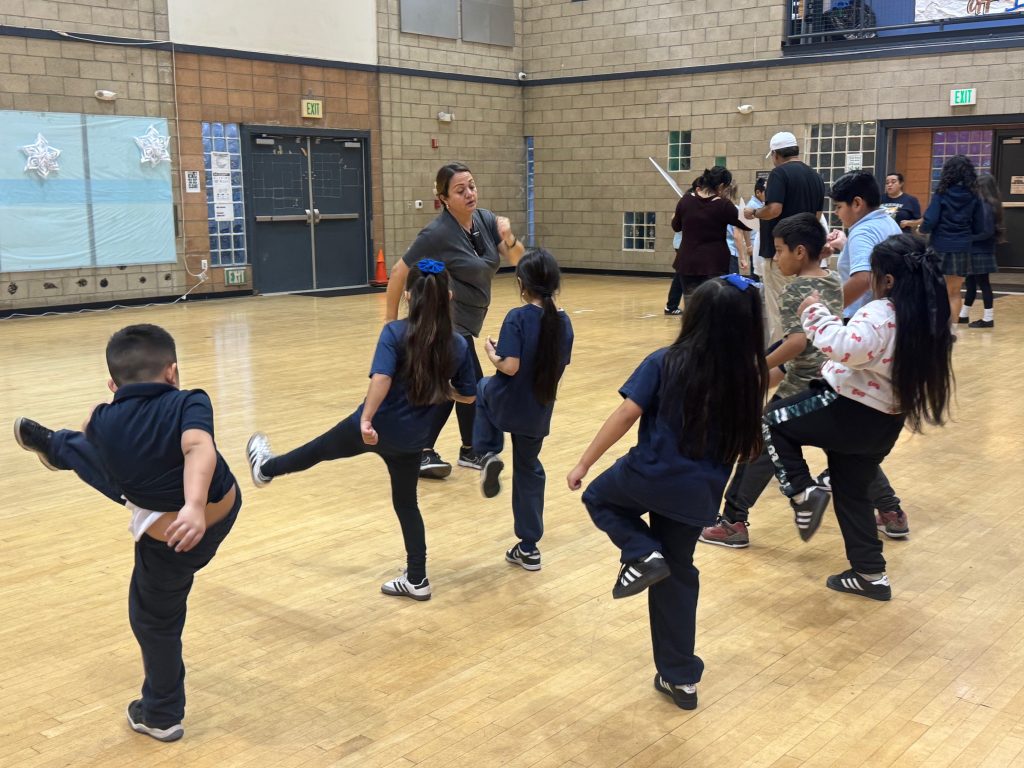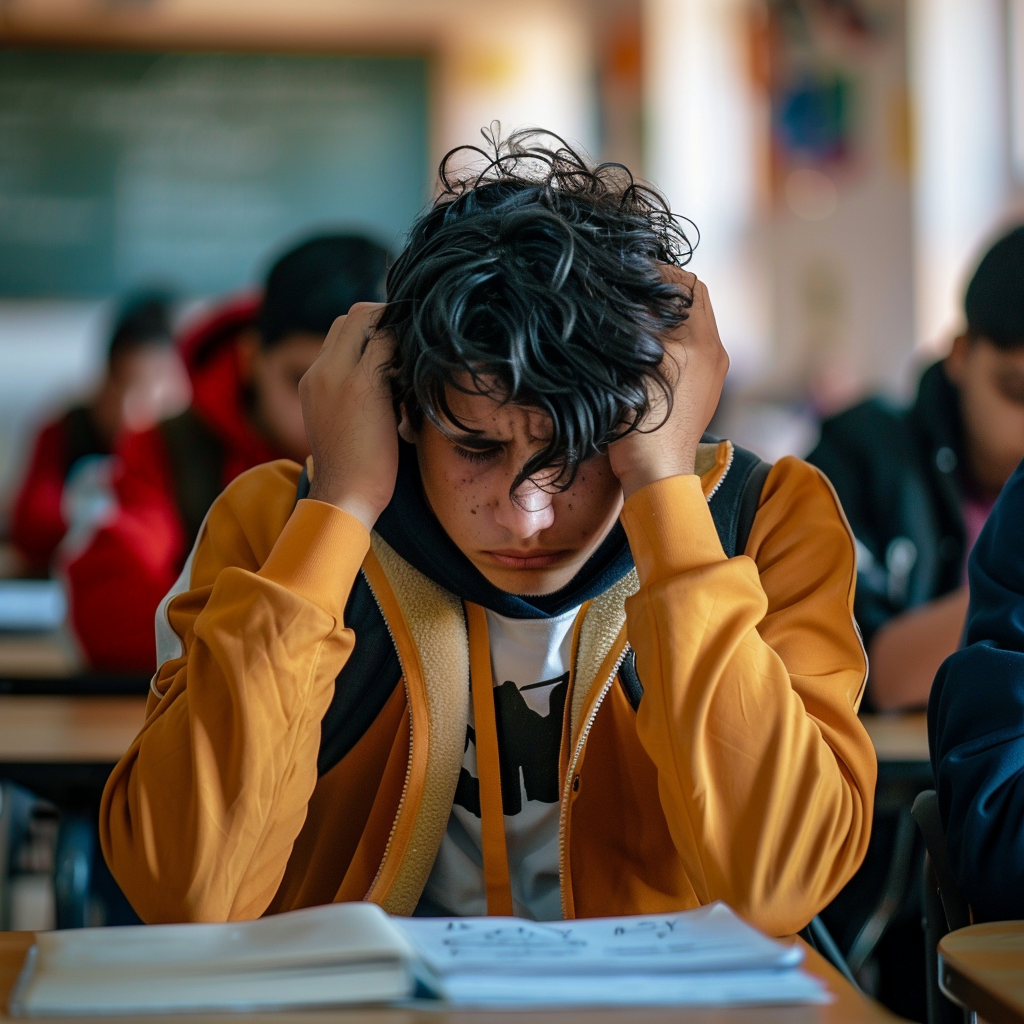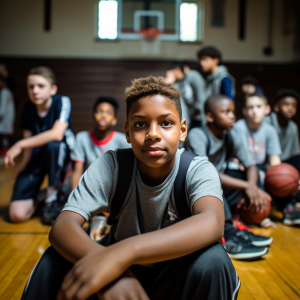 Growing up in an underserved community comes with unique challenges that many of us don’t truly understand. Where crime, gang activity, and limited resources can shape daily life for children and teens, it’s a common struggle to find a safe space; a place where they can interact with role models they can identify with and find opportunities for growth and positivity.
Growing up in an underserved community comes with unique challenges that many of us don’t truly understand. Where crime, gang activity, and limited resources can shape daily life for children and teens, it’s a common struggle to find a safe space; a place where they can interact with role models they can identify with and find opportunities for growth and positivity.
Without structured support to provide hope, many of these children are left vulnerable to their environment and the negative influences within, making it even harder to break the devastating cycle they endure every day.
But what if something as simple as a unique online martial arts program at a local community center provided not only a refuge, but a path to empowerment, leadership, and an overall brighter future?
At Proyecto Pastoral in Boyle Heights (East Los Angeles), we’ve seen with our own eyes how such a program can transform lives. Thankfully, community centers like this are a beacon of hope in what can often be described as a revolving door of challenges for many of the youth in the area and others like it.
Our program and our partnership with Proyecto aren’t just about teaching self-defense to the youth in this community; it’s about instilling valuable life skills and character traits in a way that traditional sports don’t. Through our online platform and cutting-edge curriculum, students don’t just learn martial arts movements—they learn to mentor and uplift each other, stepping into leadership roles and elevating the community as a whole.
Martial arts aren’t just another recreational activity. They are a proven tool for building resilience, emotional regulation, and confidence. Backed by research and real-world success stories, programs like ours help kids develop the skills they need to navigate challenges, avoid dangerous paths, and take control of their future. Utilizing our self-sustaining platform, community centers across the country like Proyecto Pastoral can also harness the power of martial arts to change lives, strengthen communities, and give at-risk youth a fighting chance.
What are the Specific Challenges?
The youth in economically disadvantaged communities face significant threats to their safety, stability, and healthy development. Without positive role models and appropriate adult supervision, these children are often left to fend for themselves.
In 2019, 9% of U.S. students aged 12-18 stated that they experienced evidence of gang activity in their schools (Kidsdata.org, 2019). Additionally, it is shown that juvenile crime often peaks during after-school hours, with 26% of offenses occurring between 2 p.m. and 6 p.m., including assault, theft, and drug-related crimes (International Association of Chiefs of Police, 2018). These statistics just begin to highlight the urgent need for interventions that provide safe, positive, and structured environments for young people.
The lack of accessible, fully funded after-school programs in low-income areas can also exacerbate these issues, leaving many without constructive activities and/or adult supervision. This absence also contributes to higher dropout rates; in 2014, 11.6% of low-income families had a high school dropout compared to 2.8% of higher-income families (Ballard Brief, 2021).
In addition, economic challenges have been linked to poor health and an increased risk of psychological disorders in children, effects that unfortunately can persist across their lifetime if not addressed early (American Psychological Association, n.d.). Without appropriate support, these young people are more susceptible to engaging in dangerous behaviors which can create physical and mental health challenges that can negatively affect them the rest of their lives.
To address this, there is a critical need for affordable, accessible, structured, and community-driven programs that extend beyond traditional sports.
After-school programs like those at Proyecto Pastoral have been shown to provide a safe haven and reduce crime by offering constructive alternatives to gangs and drugs during peak hours (Fight Crime: Invest in Kids California, 2015). Furthermore, such programs can improve school attendance and academic performance by providing a positive outlet for at-risk youth (International Association of Chiefs of Police, 2018).
However, starting a martial arts program at a community center presents challenges, as traditional programs require an experienced black belt instructor—making cost and instructor availability significant barriers. At Believing Through Achieving, we asked the question: What if anyone could teach martial arts as well as a black belt? We answered that question by creating a program that makes it possible. Now, teachers, coaches, and parents can confidently teach martial arts with the same effectiveness as a seasoned black belt.
By fostering safe spaces and mentorship opportunities through activities like martial arts, these programs play a pivotal role in empowering youth and mitigating the effects of socioeconomic disadvantages.
Martial Arts as a Pathway to Personal Growth & Leadership
At its core, martial arts are about more than physical movement; they are about self-control, perseverance, and focus, to name a few. These skills (and many others!) are taught consistently through both application and experience while training. In addition, skills like these are crucial for young people, particularly in areas where external distractions and negative influences can derail their focus and development.
In martial arts, students learn to harness their concentration under pressure, respect rules, and persist even when faced with challenges that may cause frustration. These lessons can directly translate into other areas of life: students can apply the same concentration and determination they develop in their training to their school life, for example (Lakes & Hoyt, 2004). Furthermore, the routine and structure inherent in martial arts classes offer a stabilizing foundation, providing an outlet for youth to help manage stress and develop positive habits (Roth & McKown, 2021).
Beyond discipline, martial arts can instill confidence and empowerment in anyone, but particularly for kids who routinely face adversity. Numerous studies have shown that martial arts training can significantly improve self-esteem and confidence. For example, a study by Kim et al. (2013) found that children who participated in martial arts reported increased confidence in their abilities to manage both academic and social challenges. This is particularly important for young people who may struggle with anxiety or low self-esteem due to their socioeconomic circumstances.
Martial arts training allows these students to see tangible progress—whether it’s learning a new technique or earning a new belt—which can reinforce the confidence that they can succeed in other areas of life as well. Additionally, the process of overcoming physical challenges in martial arts can build resilience, helping students develop the mental toughness needed to navigate life’s hurdles, both big and small (Kobayashi, 2020).
An intrinsic benefit of our martial arts program is the building of leadership and peer mentorship opportunities at the beginner levels. Our system encourages students to mentor one another and take on leadership roles. This empowerment can be especially profound in communities where youth may not have many positive role models or positive opportunities to demonstrate responsibility. According to a study by Gracie et al. (2016), the opportunity to mentor others can significantly enhance a child’s sense of leadership, positively impacting their social development and self-worth.
At Proyecto Pastoral, we have seen firsthand how our martial arts platform can provide youth with the opportunity to step up as role models and mentors in their community. For example, students who have advanced through the beginning stages of the program have taken on leadership roles within the class – teaching and helping to guide younger students by showing them the value of perseverance, respect, and self-discipline.
This peer mentorship is a powerful tool for community building, as it encourages a sense of responsibility and ownership over the success of not only yourself, but also for others. By mentoring their peers, these students are not only enhancing their own leadership skills but are also building a stronger, more supportive environment in their community. Many of these young leaders have become sources of inspiration, demonstrating that they, too, can make a difference despite the obstacles they face. The real-life impact of martial arts at Proyecto Pastoral is clear—students are becoming the change-makers in their own neighborhoods, setting positive examples and empowering others to follow suit.
Why an Online Martial Arts Program Matters
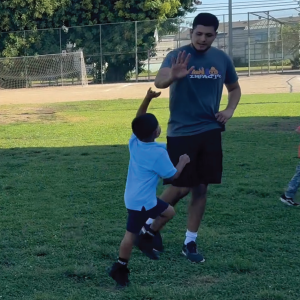 Our platform is designed to eliminate common obstacles often encountered by individuals in a socioeconomically challenged area.
Our platform is designed to eliminate common obstacles often encountered by individuals in a socioeconomically challenged area.
By offering a flexible, on-demand system that empowers teachers, caregivers, and mentors to deliver martial arts training within their own environment, we open the possibilities to train for everyone.
Whether it’s integrated into a classroom, a community center, or a home setting, our program ensures that movement-based learning is accessible and affordable.
We have effectively removed the traditional hurdles and decentralized martial arts, allowing anyone to train in any setting at any time.
Unlike traditional martial arts classes that often rely on in-person sessions, our platform offers:
- Flexibility: Instructors can tailor the pace and structure of lessons to meet their students’ unique needs.
- Accessibility: With no requirement for specialized equipment or large facilities, our program can be implemented in virtually any space.
- Empowerment: By equipping teachers, therapists, and caregivers with clear, step-by-step video instruction, we enable those who already understand their students best to take on the role of martial arts instructor, removing the need for costly outside experts.
By adapting martial arts to fit within the environments that underserved youth already have access to, we eliminate barriers that too often prevent them from participating in programs that can build confidence, focus, and leadership skills. Believing Through Achieving addresses critical access challenges – both financial and geographic – by decentralizing martial arts instruction.
The challenges faced by underserved communities are complex, but by providing accessible tools like martial arts, we can offer powerful solutions.
By equipping teachers, caregivers, and community leaders to implement our platform, we create a space where young people can build resilience, develop leadership skills, and explore career opportunities that allow them to give back to their communities.
Through our existing partnerships with community centers like Proyecto Pastoral, we have witnessed the lasting impact that martial arts can have. When we have continued support, we can expand our outreach and ensure that more students gain access to this life-changing resource.
Together, we can empower youth to break free from the cycles of hardship and create a future filled with confidence, strength, and possibility. Because sometimes, all it takes is one opportunity to change the course of a life.
Join us in making a difference. Together, we can provide hope, strength, and a fighting chance for the youth who need it most.
References
American Psychological Association. (n.d.). Children, youth, families, and socioeconomic status. https://www.apa.org/pi/ses/resources/publications/children-families
Ballard Brief. (2021). The socioeconomic achievement gap in the US public schools. https://ballardbrief.byu.edu/issue-briefs/the-socioeconomic-achievement-gap-in-the-us-public-schools
Fight Crime: Invest in Kids California. (2015). After-school programs can prevent crime. https://sedn.senate.ca.gov/sites/sedn.senate.ca.gov/files/2pgr_-_as_2015.pdf
Gracie, D., Vukovich, S., & Liguori, G. (2016). Leadership and social development through martial arts programs. Journal of Leadership and Education, 22(4), 45-58.
International Association of Chiefs of Police. (2018). After school: The prime time for juvenile crime. https://www.policechiefmagazine.org/after-school-the-prime-time-for-juvenile-crime/
Kidsdata.org. (2019). Gang involvement summary. https://www.kidsdata.org/topic/73/gang-involvement/summary
Kim, Y. H., Park, Y. H., & Lee, S. M. (2013). Martial arts and children’s self-efficacy: A study of the impact of martial arts training on self-esteem in youth. Journal of Applied Psychology, 16(3), 110-115.
Kobayashi, M. (2020). Martial arts and resilience: Developing mental toughness in children. Psychological Studies, 48(2), 139-151.
Lakes, K. D., & Hoyt, W. T. (2004). The impact of martial arts training on the development of self-control in youth. Journal of Abnormal Child Psychology, 32(4), 27-37.
Roth, T., & McKown, S. (2021). Benefits of structured programs for at-risk youth: How martial arts improve academic outcomes. Youth & Society, 53(1), 78-90.
